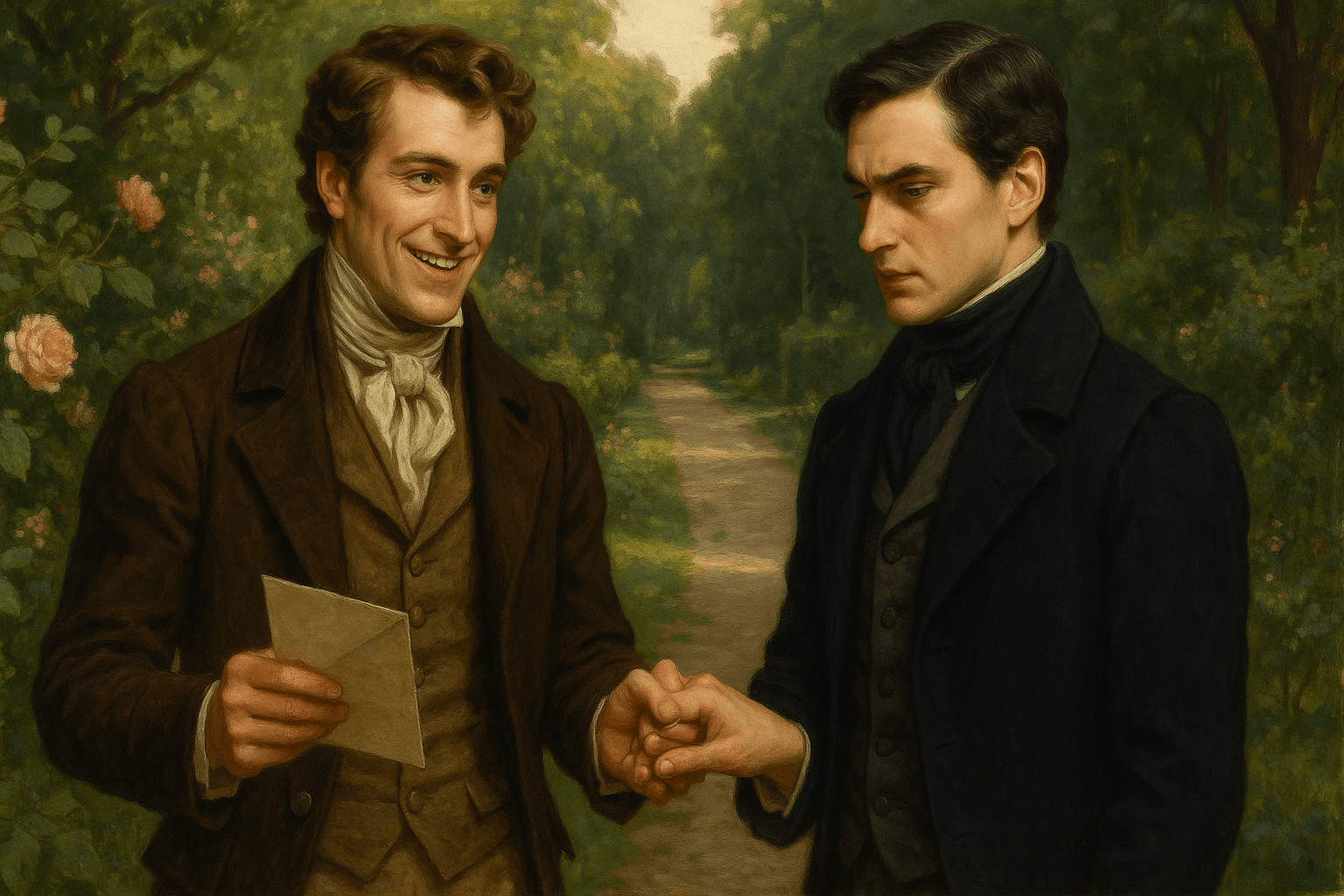First Impressions: The Heart of Pride and Prejudice

First impressions are often powerful, evoking immediate feelings that can shape our perceptions for years to come. In Jane Austen's ' Pride and Prejudice ', this theme is not just a backdrop; it is the very fabric that weaves together the lives of the characters, guiding their choices, misunderstandings, and ultimately, their growth.
At the outset, we meet Mr. Bingley and Mr. Darcy, two gentlemen whose contrasting first impressions set the stage for the entire narrative. Bingley is likable and affable, easily winning the admiration of the Bennet family, particularly Jane. In stark contrast, Mr. Darcy’s initial aloofness and pride lead Elizabeth Bennet to form a negative impression of him—an impression that she clings to despite evidence to the contrary. Elizabeth overhears Darcy dismissing her as merely "tolerable," a remark that solidifies her dislike, and sets up a complex dynamic that challenges both characters throughout the story.
As the story unfolds, first impressions continue to dictate the relationships around Elizabeth. Lydia’s infatuation with Mr. Wickham is a prime example. Initially, he appears charming and gallant, winning over the hearts of the Bennet sisters. However, as the plot thickens, his true character is revealed, showcasing the dangers of judging someone based on superficial charm. Elizabeth’s realization of Wickham’s deceit further emphasizes how first impressions can blind one to deeper truths, leading to regret and turmoil.
Moreover, the societal pressures surrounding marriage and status add layers to these initial encounters. Mrs. Bennet’s desperation for advantageous matches influences her perceptions of Bingley and Darcy, showcasing how first impressions are often colored by external expectations. When Mr. Collins proposes to Elizabeth, his pompous demeanor and self-importance create a laughable yet tragic first impression, one that Elizabeth firmly rejects. This moment not only highlights her strong will but also serves as a critique of the societal norms that dictate women’s choices in marriage.
A pivotal moment occurs when Elizabeth receives a letter from Darcy, challenging her earlier judgments. This letter acts as a turning point, prompting her to reassess her initial impressions and consider Darcy’s true character. As she reflects on her own biases, she acknowledges, "How despicably have I acted!" This realization is crucial; it underscores the novel’s message that first impressions can be misleading, and understanding someone often requires delving deeper.
As the narrative progresses, we see Elizabeth’s perceptions of Darcy evolve. Their initial tumultuous encounters transform into a bond based on mutual respect and understanding. When Darcy helps Lydia, Elizabeth’s feelings shift from disdain to appreciation, illustrating how time and personal growth can change first impressions into something more profound.
Ultimately, ' Pride and Prejudice ' teaches us that while first impressions can be powerful, they are often incomplete and misleading. Austen skillfully navigates the complexities of human relationships, reminding us that true understanding comes from looking beyond the surface. As readers, we are left to ponder: how often do we allow first impressions to dictate our judgments of others? And how might our lives change if we chose to go deeper?
Books: Pride and Prejudice
Authors: Jane Austen
Publishers: Public Domain